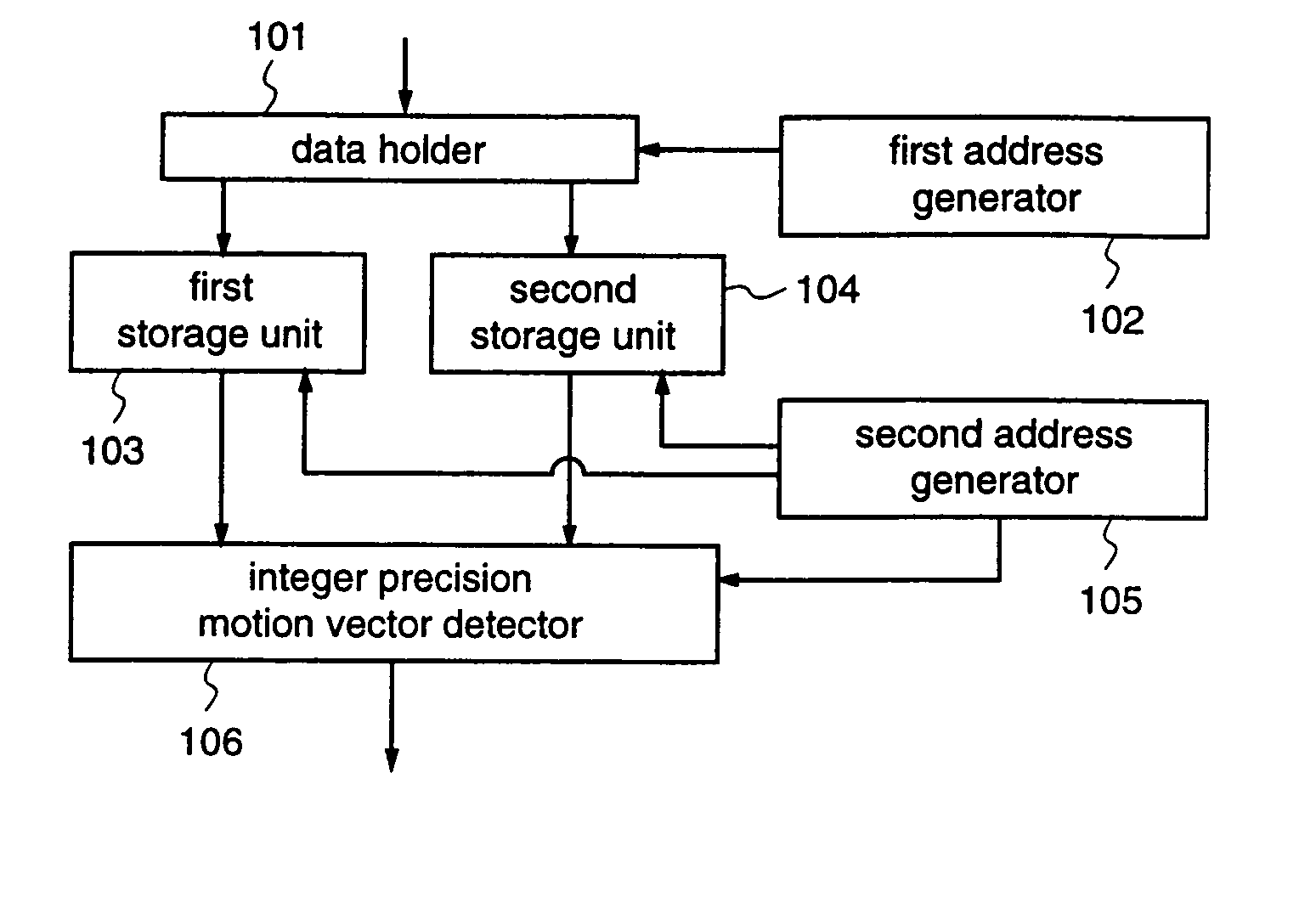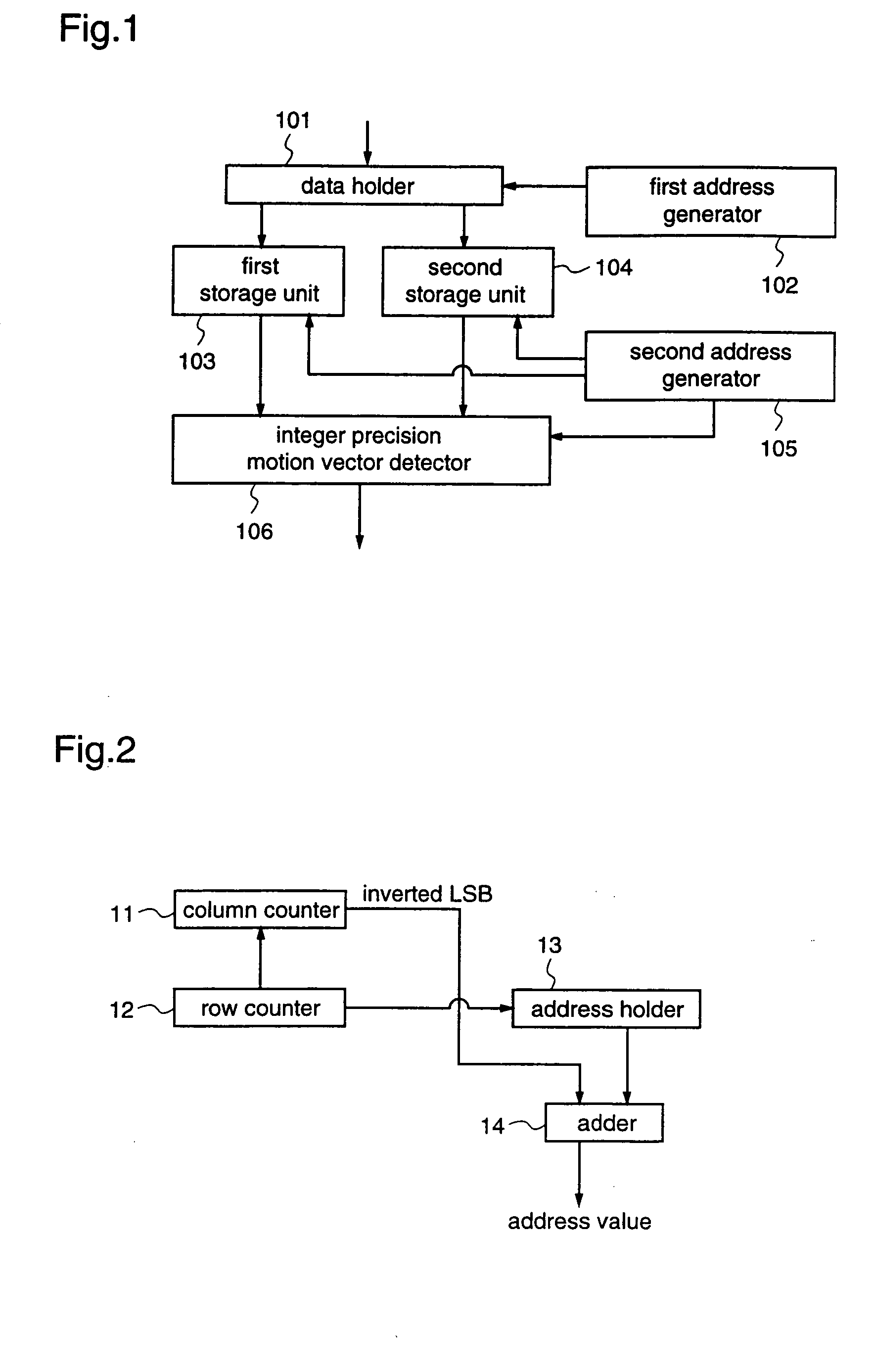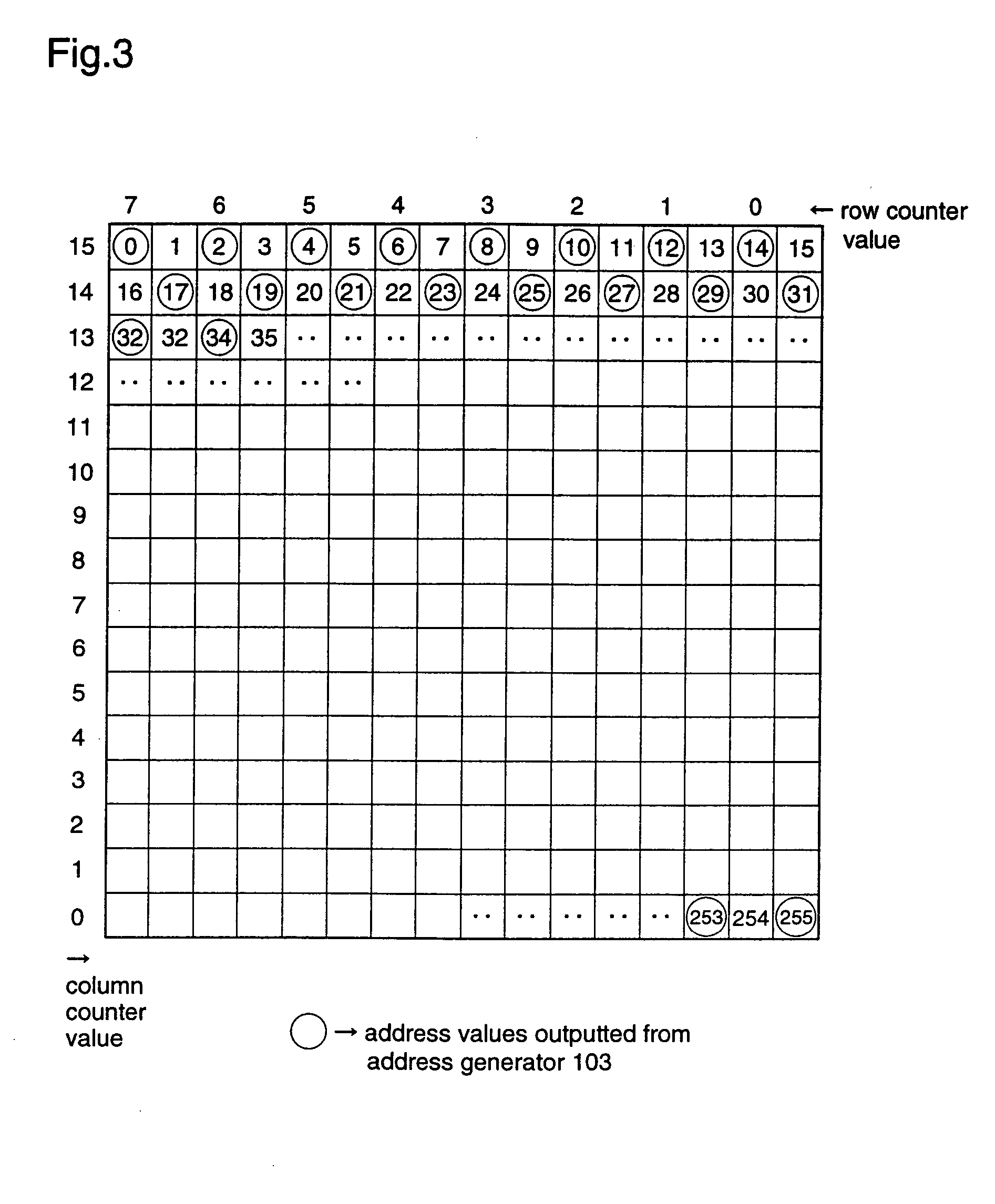Motion vector detection apparatus for performing checker-pattern subsampling with respect to pixel arrays
a detection apparatus and motion vector technology, applied in the field of image compression, can solve the problems of heavy load on the versatile processor, loss in calculation speed and power consumption, etc., and achieve the effects of reducing production cost, reducing circuit scale, and increasing processing speed
- Summary
- Abstract
- Description
- Claims
- Application Information
AI Technical Summary
Benefits of technology
Problems solved by technology
Method used
Image
Examples
embodiment 1
[Embodiment 1]
[0074] Hereinafter, a motion vector detection apparatus according to a first embodiment of the present invention will be described with reference to FIGS. 1 to 4.
[0075]FIG. 1 is a block diagram illustrating the structure of a motion vector detection apparatus according to the first embodiment. In FIG. 1, the motion vector detection apparatus comprises a data holder 101, a first address generator 102, a first storage unit 103, a second storage unit 104, a second address generator 105, and an integer precision motion vector detector 106.
[0076] The data holder 101 is a bulk memory for holding image data. The data holder 101 outputs data of a reference area to the first storage unit 103, and outputs data of a target block to the second storage unit 104, according to an instruction from the first address generator 102.
[0077] The first address generator 102 generates, from the image data stored in the data holder 101, addresses of the data of the target block (data to be ...
embodiment 2
[Embodiment 2]
[0101] Hereinafter, a motion vector detection apparatus according to a second embodiment of the invention will be described with reference to FIGS. 5 to 7.
[0102]FIG. 5 is a block diagram illustrating the structure of a motion vector detection apparatus according to the second embodiment. With reference to FIG. 5, the motion vector detection apparatus is provided with a data holder 101, a first address generator 102, a first storage unit 103, a second storage unit 104, a second address generator 105, and an integer precision motion vector detector 206.
[0103] The motion vector detection apparatus of this second embodiment is different from the motion vector detection apparatus of the first embodiment only in that the integer precision motion vector detector 206 is featured. Therefore, the same constituents as those of the motion vector detection apparatus according to the first embodiment are given the same reference numerals, and description of these constituents will...
embodiment 3
[Embodiment 3]
[0134] Hereinafter, a motion vector detection apparatus according to a third embodiment of the present invention will be described with reference to FIGS. 8 to 10.
[0135]FIG. 8 is a block diagram illustrating the structure of a motion vector detection apparatus according to the third embodiment. With reference to FIG. 8, the motion vector detection apparatus comprises a data holder 101, a first address generator 102, a first storage unit 103, a second storage unit 104, a second address generator 105, an integer precision motion vector detector 206, and a search history holder 301.
[0136] The motion vector detection apparatus according to this third embodiment is different from the motion vector detection apparatus of the second embodiment only in that the histories of reference blocks on which search has been done are stored to avoid double search on the same reference block. Therefore, the same constituents of the motion vector detection apparatus as those already des...
PUM
 Login to View More
Login to View More Abstract
Description
Claims
Application Information
 Login to View More
Login to View More - R&D
- Intellectual Property
- Life Sciences
- Materials
- Tech Scout
- Unparalleled Data Quality
- Higher Quality Content
- 60% Fewer Hallucinations
Browse by: Latest US Patents, China's latest patents, Technical Efficacy Thesaurus, Application Domain, Technology Topic, Popular Technical Reports.
© 2025 PatSnap. All rights reserved.Legal|Privacy policy|Modern Slavery Act Transparency Statement|Sitemap|About US| Contact US: help@patsnap.com



